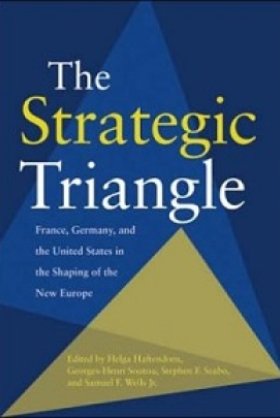The Strategic Triangle: France, Germany, and the United States in the Shaping of the New Europe

-
France is Germany’s most important partner in the process of European integration. The United States was long Germany’s protector but now is the power balancing Germany’s in Europe. And the Franco-American relationship, though less prominent than the other two, has a great impact on both of them.
Taking the perspective of each country by turns, this book discusses a series of economic and diplomatic episodes and asks how they affected the countries’ relations with each other, with countries outside this triangle, and with international institutions such as the EU and NATO. It concentrates on the period 1965–95, examining the NATO crisis of 1966–67, the collapse of the Bretton Woods system, Ostpolitik, détente, and the end of the Cold War. The book also discusses the origins of the triangle after the Second World War and devotes an epilogue to the triangle after 9/11.
The Strategic Triangle is based on a conference held in Potsdam, Germany, and a workshop at the Woodrow Wilson Center.
The contributors to The Strategic Triangle are historians and political scientists from all three countries. Helga Haftendorn is university professor emerita of International Relations at the Free University of Berlin and former director of its Center on Transatlantic Foreign and Security Policy Studies. Georges-Henri Soutou is professor of contemporary history at the University of Paris-Sorbonne (Paris IV). Stephen F. Szabo is professor of European studies at the Paul H. Nitze School of Advanced International Studies, Johns Hopkins University. Samuel F. Wells, Jr., is associate director and director of West European Studies of the Woodrow Wilson International Center for Scholars.
Editors
Helga HaftendornFormer Public Policy Scholar Samuel WellsCold War Fellow and Member, History and Public Policy Program Advisor Board;Schedule interview
Samuel WellsCold War Fellow and Member, History and Public Policy Program Advisor Board;Schedule interview
Former Deputy and Associate Director, Woodrow Wilson Center; Former Director, West European Studies Program, Woodrow Wilson CenterBrowse Insights & AnalysisExplore More
Browse Insights & Analysis



